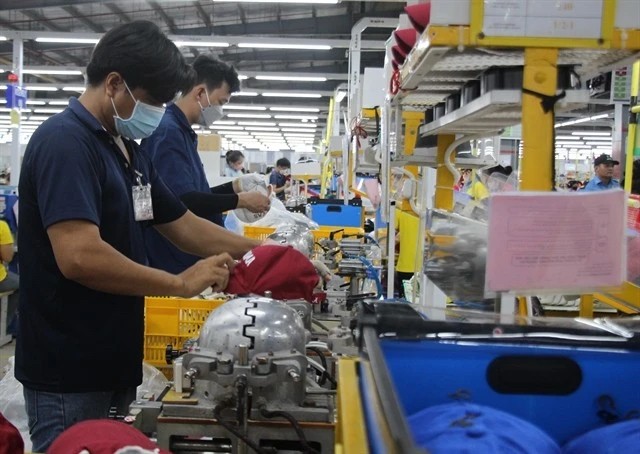Vietnamese Retail Market Attracts Foreign Investors
Motoya Okada, president and CEO of prominent Japanese retailer AEON Group, disclosed during a recent meeting with Prime Minister Pham Minh Chinh that the company has been implementing its medium and long-term objectives in Vietnam, and that the number of shopping complexes will be increased in the near future.
AEON's general manager of Strategic Human Resource Management, Corporate Communication & External Affairs, Nguyen Thi Ngoc Hue, said the company has a presence in six provinces and cities across the country, spanning a variety of business areas including shopping malls, department stores, bicycle, pet, and cosmetic shops.
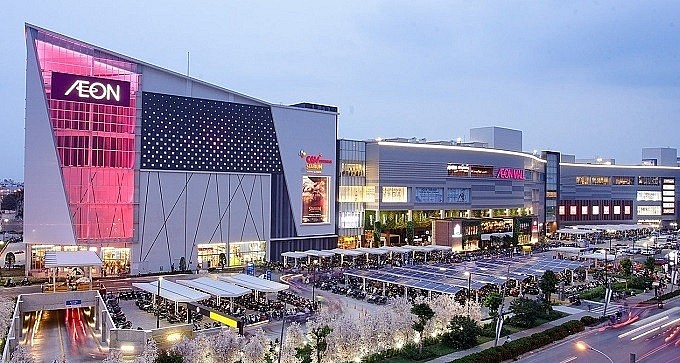 |
| The Japanese retailer AEON has signed a memorandum of understanding with the Bac Ninh Province People's Committee to construct a $190 million shopping complex in 2022. Photo: AEON |
Other significant foreign retail firms, such as FamilyMart, K-Mart, Lotte, Central Group, and Circle K, have been speeding up their expansion strategies in the Vietnamese market alongside AEON.
Foreign investors in Vietnam looking to establish retail outlets are often subject to the economic needs test (ENT) criteria. This restriction has been criticized by some investors as a barrier to the business environment, adding to bureaucratic difficulties and delays.
A series of recent mergers and acquisitions (M&A) transactions, in particular, have emphasized the attractiveness of the Vietnamese market.
Previously, a group of investors, including Alibaba and the Banring Private Equity Asia investment fund, put US$400 million into The Crownx, while the Republic of Korea's SK Group put US$410 million into VinCommerce, Vietnam's largest retailer.
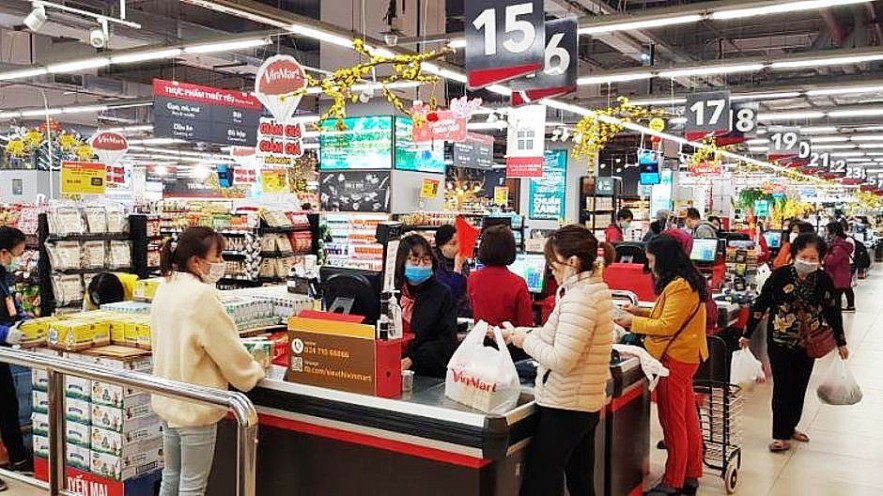 |
| The South Korea Group (SK Group) bought 16.26% stake in the Vietnam retail chain VinComerse. Photo: dealstreetasia |
Foreign financiers' considerable interest in the Vietnamese retail business is partly attributed to a continuous increase in population and rapid rise in consumer expenditure, according to economists.
Furthermore, the local middle class presently accounts for 13% of the total population, with that number expected to more than quadruple by 2026.
The importance of a healthy business climate, according to Le Viet Nga, deputy director of the Ministry of Industry and Trade's Domestic Market Department, will help to create more favorable conditions for international investors to deposit greater capital into the domestic market.
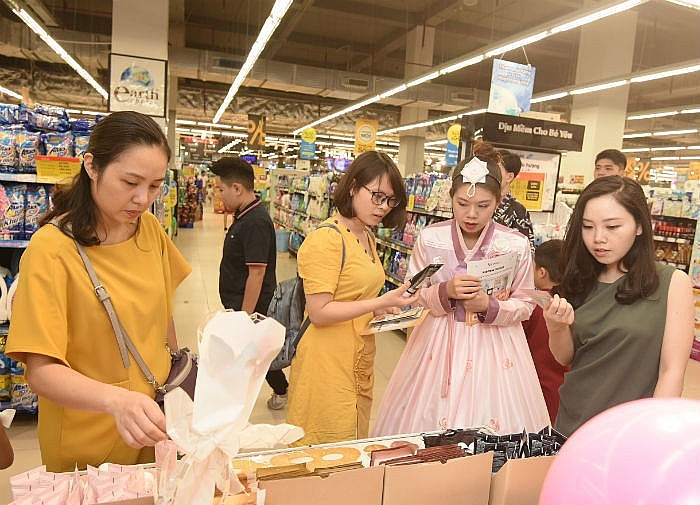 |
| Korean shopping at Lotte mall in Hanoi. Photo: Vietnamnet |
Despite the pandemic, Savills said Vietnam's retail market is still attractive to foreign investors. Regarding prospects, Matthew Powell, Director of Savills Hanoi emphasized, Vietnam has the advantage of a fast-growing economy in Southeast Asia, according to VNexpress.
Vietnam's consumer spending has increased rapidly. According to World Bank research, the middle class in Vietnam currently accounts for 13% of the total population and will reach 26% by 2026. This growth will create an optimistic change in total domestic consumer spending. Moreover, the fact that GDP per capita is close to 3,000 USD also shows significant potential for the retail industry in Vietnam.
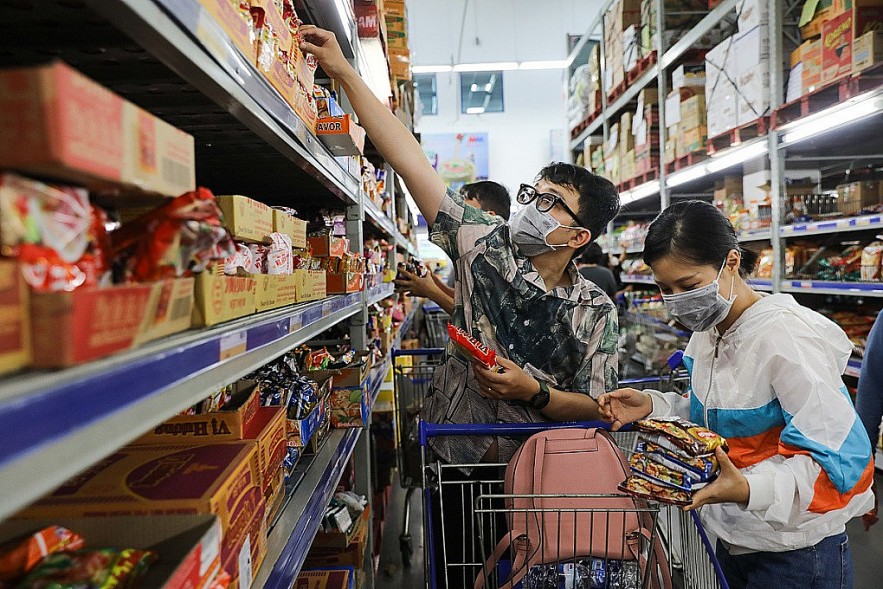 |
| Saigon citizens at Mega Market in Thu Duc, shopping after social distancing policy. Photo: VNExpress. |
The data shows that 5 out of 66 newly-licensed projects in Hanoi in the first quarter are shopping centers and supermarkets, accounting for 27% of newly registered FDI in the capital. These 5 projects are all due to large investors, from Japan and Korea, who want to do long-term business in Vietnam.
Traditional retail, which includes supermarkets and traditional markets, has a 74 percent market share and a 1% annual growth rate, according to Nielsen, whereas modern retail has a 26 percent market share and a 12 percent annual growth rate.
According to the Ministry of Planning and Investment, new FDI in the wholesale, retail, and engine repair sectors totaled 22.1 million USD in the first quarter, from 42 projects, representing 0.3% of the country's total capital. In Hanoi, newly registered capital in the categories of wholesale, retail, and engine repair totals 19.7 million USD, accounting for 40% of total capital in Hanoi and 89% of total FDI capital in Vietnam.
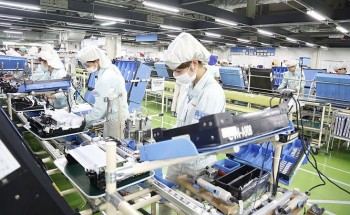 | Vietnam Remains Attractive for Foreign Investment More than US$26 billion of FDI poured into Vietnam during the first 11 months of 2021, although Vietnam was heavily affected by the Covid-19 pandemic ... |
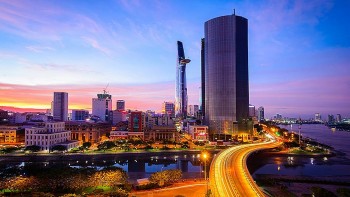 | Vietnam Remain an Attractive Investment Destination in Post Pandemic: Bangkok Post Given Vietnam's deep integration with the global economy, the Vietnamese economy has shown remarkable resilience in spite of being hit by the ongoing COVID-19 pandemic. ... |
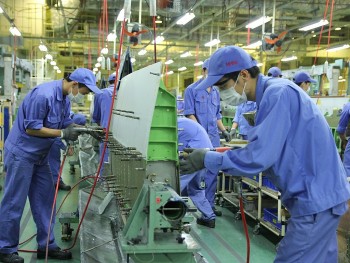 | Foreign Investors Underline Belief in Vietnam's post-Covid Economic Recovery Despite the fourth Covid wave that broke out in Vietnam in late April, Vietnam attracted US$ 14 billion in FDI in the first 8 months ... |

